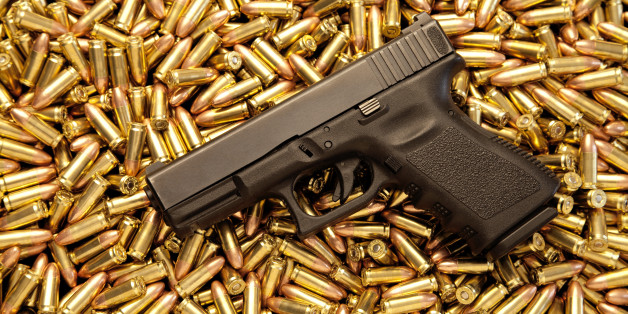Heavily armed domestic terrorists have occupied a wildlife preserve in Oregon and invited other extremists to take up arms and join the movement. Calling themselves "patriots" the followers of Cliven Bundy are protesting the impending imprisonment of two ranchers on arson charges. The anti-government radical leader has long challenged restrictions on grazing his cattle on Federal land. Neither the human rights organizations that track domestic hate groups, nor those of us who study violent extremism are surprised by this latest development. We are, however, puzzled by one thing: Why do virtually all media outlets dignify these people by calling them "militiamen?" They are terrorists, pure and simple.
The contemporary 'citizens militia' movement has appropriated and perverted the concept of militias in use at the time of the American Revolution. Lacking a regular army, the colonists initially relied on local bodies of armed citizens to resist tyranny. Despite their celebrated stands at Lexington and Concord, however, militiamen fared poorly against British regulars. The Continental Congress quickly established a conventional army. Militias did play an important role in winning American Independence, but only when they operated under proper authority and in support of regular troops.
The new American Republic was understandably leery of creating a large standing army in peace time, having seen how such forces had been used in Europe to suppress freedom. Its founders, therefore, wrote militias into their new constitution. The much debated second amendment declares that: "A well-regulated militia, being necessary to the security of a free state, the right of the people to keep and bear arms, shall not be infringed." Gun rights advocates are fond of quoting the second clause in this sentence while ignoring the first. It would be difficult to exaggerate the importance of the term "well-regulated." Militias always operated under government authority, usually that of the state. In case of national emergency, state militias could be brought under command of the small regular army, as they were at the outbreak of the Civil War.
Militias are thus the ancestors of the modern National Guard, not of self-proclaimed "patriots" who show utter contempt for any form of authority beyond themselves. The extremists playing solider in the woods of Oregon are at best criminals and at worst domestic terrorists, and they need to be identified as such. Fighting extremism requires contesting ideology as much as combating organizations. These people must, therefore, be denied even the shred of legitimacy they try to claim.
Original Article
Source: huffingtonpost.com/
Author: Tom Mockaitis
The contemporary 'citizens militia' movement has appropriated and perverted the concept of militias in use at the time of the American Revolution. Lacking a regular army, the colonists initially relied on local bodies of armed citizens to resist tyranny. Despite their celebrated stands at Lexington and Concord, however, militiamen fared poorly against British regulars. The Continental Congress quickly established a conventional army. Militias did play an important role in winning American Independence, but only when they operated under proper authority and in support of regular troops.
The new American Republic was understandably leery of creating a large standing army in peace time, having seen how such forces had been used in Europe to suppress freedom. Its founders, therefore, wrote militias into their new constitution. The much debated second amendment declares that: "A well-regulated militia, being necessary to the security of a free state, the right of the people to keep and bear arms, shall not be infringed." Gun rights advocates are fond of quoting the second clause in this sentence while ignoring the first. It would be difficult to exaggerate the importance of the term "well-regulated." Militias always operated under government authority, usually that of the state. In case of national emergency, state militias could be brought under command of the small regular army, as they were at the outbreak of the Civil War.
Militias are thus the ancestors of the modern National Guard, not of self-proclaimed "patriots" who show utter contempt for any form of authority beyond themselves. The extremists playing solider in the woods of Oregon are at best criminals and at worst domestic terrorists, and they need to be identified as such. Fighting extremism requires contesting ideology as much as combating organizations. These people must, therefore, be denied even the shred of legitimacy they try to claim.
Original Article
Source: huffingtonpost.com/
Author: Tom Mockaitis

No comments:
Post a Comment